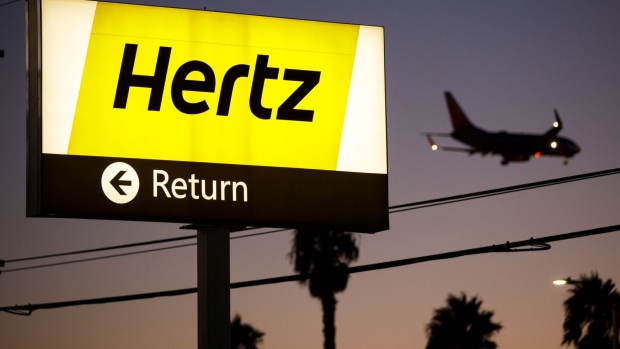May 5, 2020
Hertz gets lenders' forbearance in bid to avert bankruptcy
, Bloomberg News

Hertz Global Holdings Inc. got an eleventh-hour reprieve from a potential bankruptcy from its lenders, who gave the struggling rental-car company more time to work out a rescue plan after it missed a debt payment.
The forbearances and waivers give Hertz until May 22 to “develop a financing strategy and structure that better reflects the economic impact of the COVID-19 global pandemic,” the company said in a regulatory filing. Hertz shares, which had plummeted as much as 36 per cent before the start of regular trading, were down 13 per cent as of 9:56 a.m. Tuesday in New York.
Hertz had been talking with some of its creditors about how to ease its burden without going through bankruptcy, though the company was preparing to file for Chapter 11 court protection if needed, according to people with knowledge of the matter. They asked for anonymity to discuss the confidential talks. The company expanded its roster of advisers to include FTI Consulting Inc., which specializes in restructuring and bankruptcy cases, the people said, confirming an earlier report by the Wall Street Journal.
In light of the toll the coronavirus pandemic is taking on the travel industry, Hertz expects it won’t need to acquire new vehicles for its fleet through the remainder of the year, according to the filing. The Estero, Florida-based company had about 567,600 vehicles in its U.S. fleet at the end of 2019.
Pandemic Impact
Sweeping travel restrictions tied to the Covid-19 outbreak and the global economic collapse have hammered revenue for the rental-car industry, with Hertz’s peer Avis Budget Group Inc. estimating an 80 per cent plunge for both April and May.
While the U.S. government has a US$50 billion bailout plan for airlines, Hertz hasn’t been able to access that program, and its chief rival, Avis, had a stronger balance sheet going into the crisis.
Hertz has been negotiating with lenders for relief as well as with the U.S. Treasury Department about the possibility of a bailout. But with dismal demand, a too-big fleet and plunging prices for used cars, the company is running short on liquidity to last until a market recovery.
In March, Hertz began laying off workers to preserve cash. By April 29, the company disclosed it had missed substantial lease payments related to its rental cars. Creditors initially gave Hertz until May 4 to come up with a solution, and Chief Executive Officer Kathryn Marinello said in an interview last week that the company was doing everything it could to preserve cash and get leniency from lenders to avoid going bankrupt.
Hertz said that effective May 11 it will restore the base salaries of employees who had agreed to voluntary reductions the company announced in late March, with the exception of Marinello. She previously volunteered to forgo her entire base salary, and has now agreed to a 10 per cent cut going forward.





